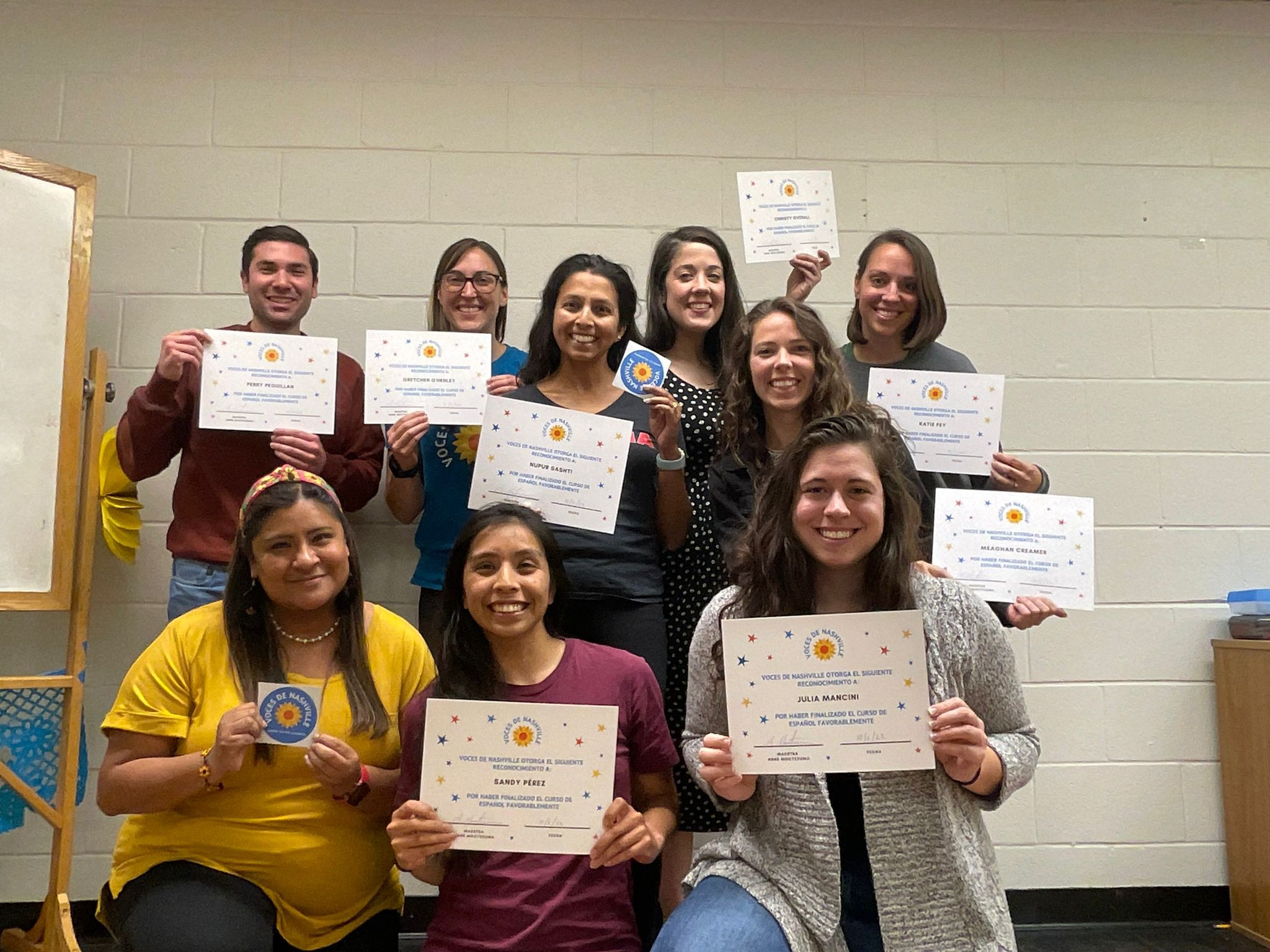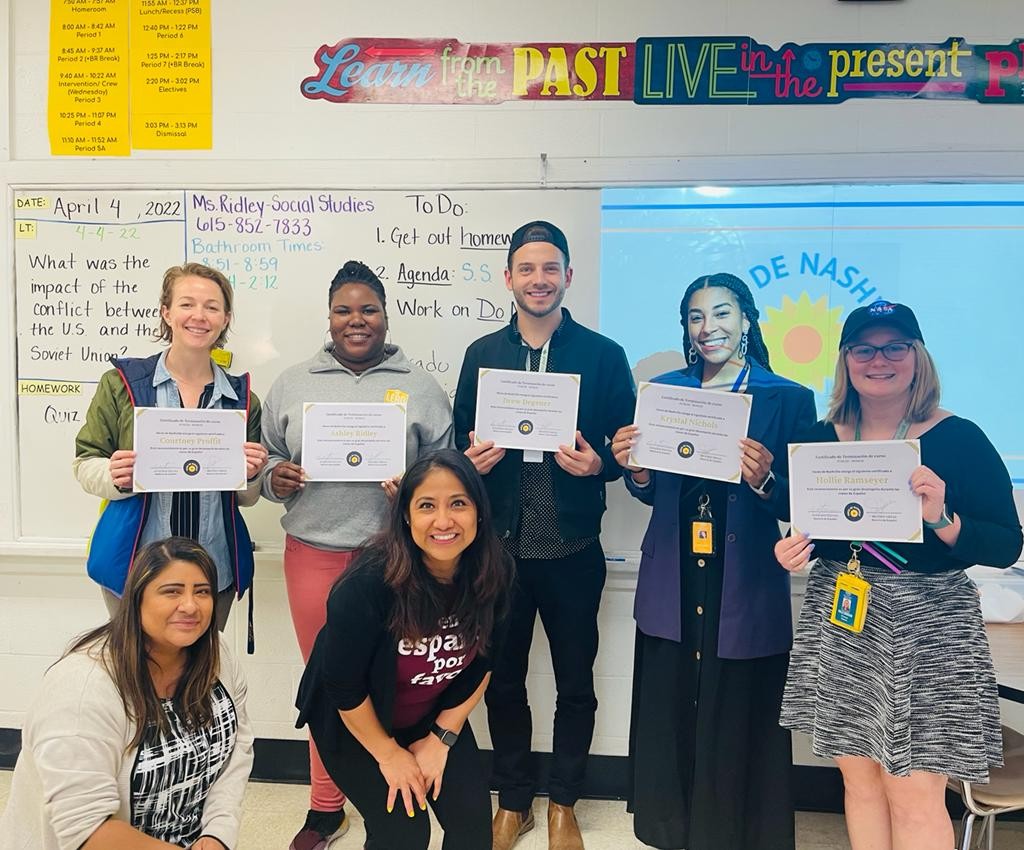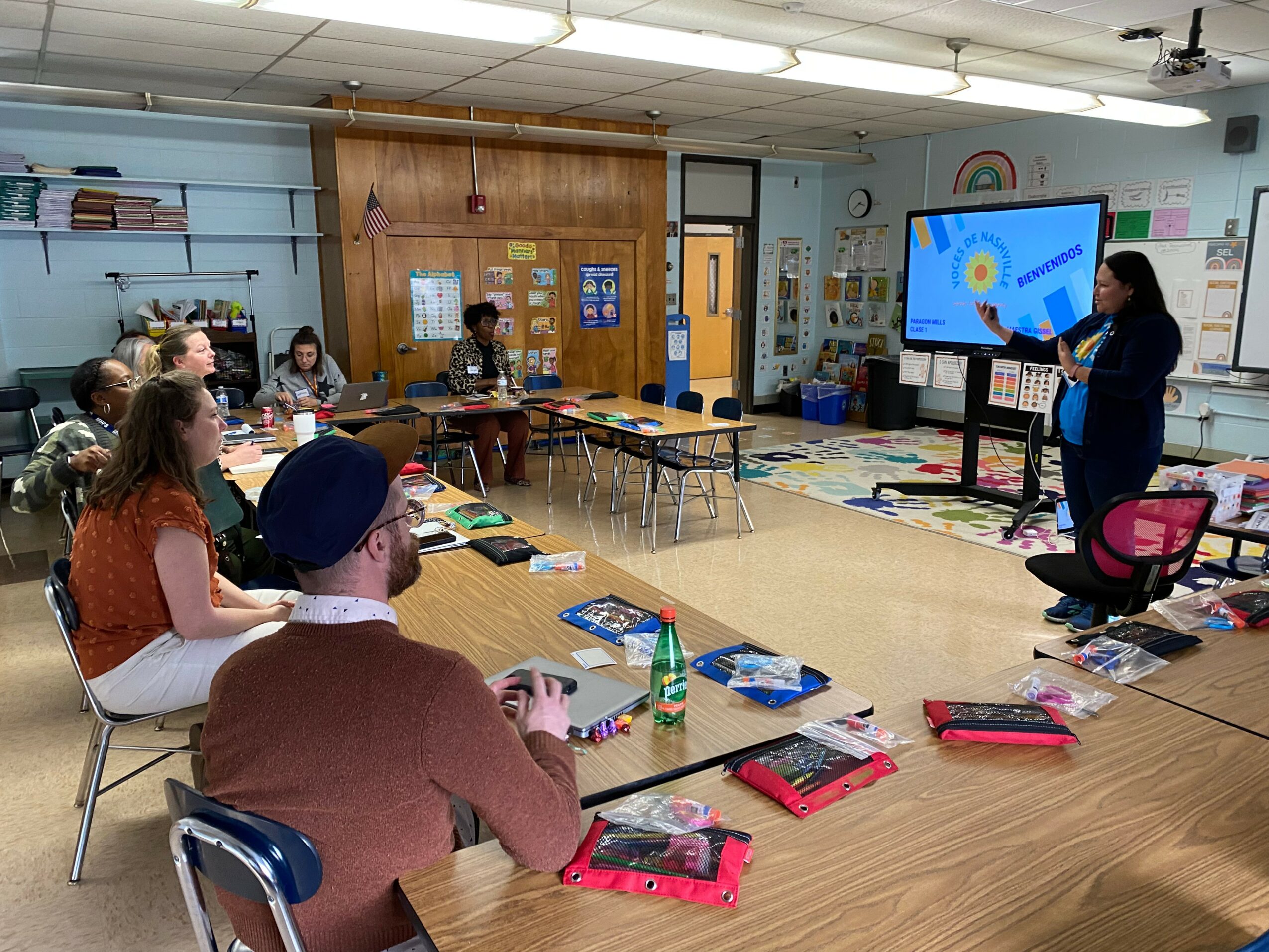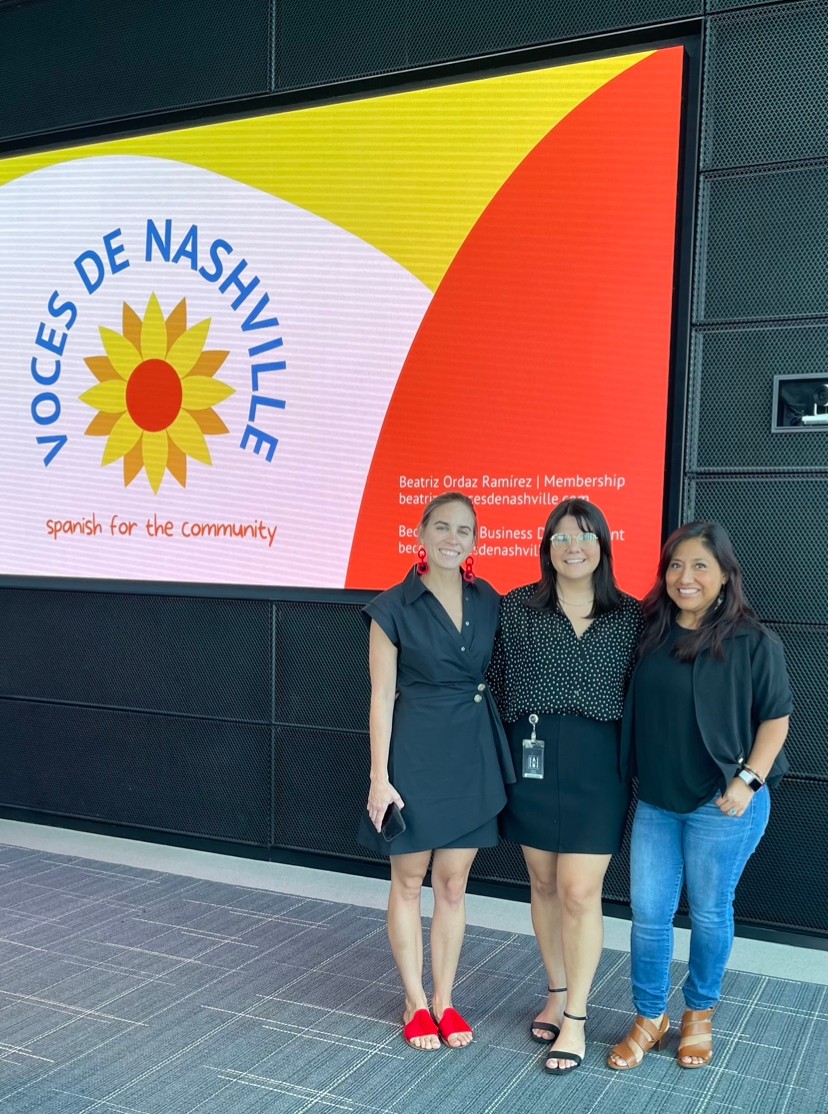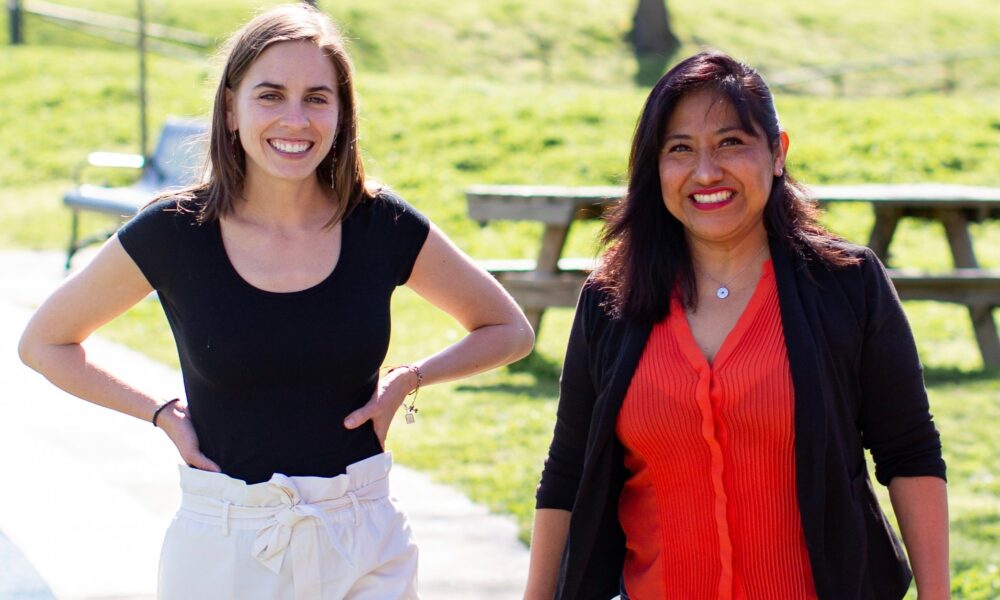

Today we’d like to introduce you to Becca Blank and Beatriz Ordaz Ramírez.
Hi Becca and Beatriz, so excited to have you on the platform. So before we get into questions about your work life, maybe you can bring our readers up to speed on your story and how you got to where you are today.
We are the founders of Voces de Nashville, a women-owned cooperative that offers Spanish classes to adults around our city.
Along with our co-founder, Vanessa Neria, we came together through a shared understanding of our community’s needs and a vision for how we might do our part to address them. As a Spanish-speaking mother of two school-aged children, Beatriz knew first-hand how language barriers can limit the connections between parents and teachers in Nashville. On the flip side, as a teacher of multilingual learners in Metro Public Schools, Becca knew that many of her peers wanted to figure out how to overcome those barriers.
So, after a few initial meetings, we started the process of building our team of Spanish-speaking women from the Nashville community who could teach K-12 educators the native language of many of their students. We held our first teacher training in the summer of 2021 in Becca’s kitchen, and by the fall we were conducting pilot programs at neighborhood non-profit Cosecha Community Development (who continues to share their space and resources with us) and LEAD Cameron Middle School.
Can you talk to us a bit about the challenges and lessons you’ve learned along the way? Looking back, would you say it’s been easy or smooth in retrospect?
Starting a business is not easy, especially a language-learning business and a cooperatively-owned business. When teaching a language, it is important to stay up-to-date on effective teaching strategies and constantly look for new tools to make learning engaging and fun for students.
Structuring ourselves as a cooperative also requires constant learning and a willingness to confront new and unpredictable challenges. In a cooperative model, we all have an ownership stake, which is very different from a traditional business. Instead of being an employee or a contractor who receives predetermined, guaranteed wages for the work they do, a co-op member is an owner who, like all business owners, has to invest time, energy, and sometimes money before beginning to see the long-term economic payoff, which is never guaranteed. Co-op members also have to learn how to make democratic group decisions, which is not a skill that most of us have had the chance to develop.
So, it is important to foster a growth mindset, be willing to take risks, and believe in a shared future where we can all benefit equitably. We have to remind ourselves that the discipline and time that we invest now will, in a few more years, be rewarded with deep personal and professional growth and hopefully a financial payoff as well.
Great, so let’s talk business. Can you tell our readers more about what you do and what you think sets you apart from others?
We are a women’s Spanish-language teaching cooperative that seeks to benefit both the native Spanish-speaking women who want to become Spanish teachers and the English-speaking community who wants to learn Spanish to help break down language barriers in our community. Since our founding, we have evolved to teaching not just educators in our community, but anyone who wants to learn Spanish.
Our classes are engaging and practical, creating a community environment where everyone can feel confident speaking without fear of judgment or making mistakes. As a mother of a student at LEAD Cameron, it is very exciting for me (Beatriz) that my son’s teachers are my students because I’m helping to meet the need for connection between parents and teachers. I feel very proud and fortunate that our organization, Voces de Nashville, has given myself and others this opportunity.
Are there any apps, books, podcasts, blogs, or other resources you think our readers should check out?
For resources on co-ops, we often refer to the U.S. Federation of Worker-owned Cooperatives. Locally, the Southeast Center for Cooperative Development provides intro workshops to the co-op model and connects those interested in starting one to folks like Gretchen Trast and Lauren Rogal for technical support. For teaching strategies, we rely on local metro teachers, like our teacher trainer, Anne Moctezuma, and Michelle McGonagle, and Addison Barrack, who wrote our teacher training curriculum.
Elena Aguilar has some great teacher-coaching resources, and the Tennessee Latin American Chamber of Commerce, led by Jessie Garcia-Knowles, has great resources for Spanish-speaking entrepreneurs. For all things community development, we turn to our collaborators and mentors at Cosecha Community Development, led by Pastor Carlos Uroza.
Contact Info:
- Website: vocesdenashville.com
- Instagram: https://www.instagram.com/voces_de_nashville/
- Facebook: https://www.facebook.com/vocesdenashville
- Linkedin: https://www.linkedin.com/company/voces-de-nashville
- Twitter: https://twitter.com/NashvilleVoces
